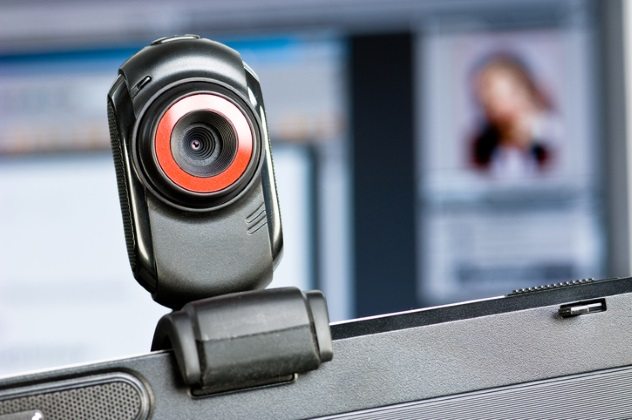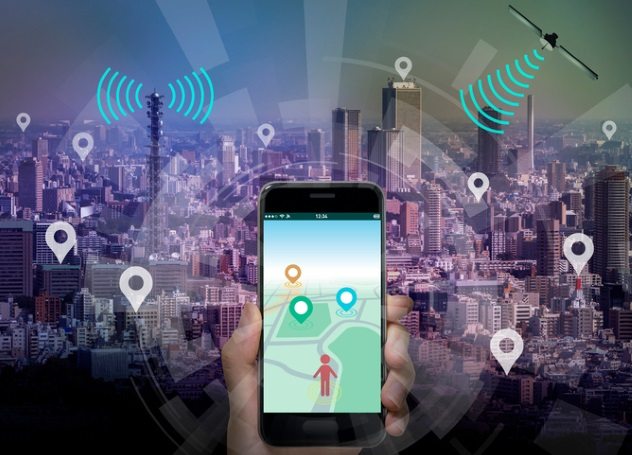 Misconceptions
Misconceptions  Misconceptions
Misconceptions  History
History 10 Amazing Roman Epitaphs
 Weird Stuff
Weird Stuff 10 Niche Subcultures That Are More Popular Than You Might Think
 Mysteries
Mysteries 10 Tragic Disappearances and Deaths in Joshua Tree National Park
 History
History 10 Ways Childhood Really Sucked in the Old West
 Music
Music 10 Name Origins of Famous Bands from the 1990s
 Religion
Religion 10 Biggest Turnarounds by the Catholic Church
 Weird Stuff
Weird Stuff 10 Unbelievable Times Laws Had Unintended Consequences
 Humans
Humans Ten Historic Women Who Deserve Way More Credit Than They Got
 Movies and TV
Movies and TV 10 Films That Spawned Major Lawsuits
 Misconceptions
Misconceptions 10 Phony Myths and Urban Legends That Just Won’t Die
 History
History 10 Amazing Roman Epitaphs
 Weird Stuff
Weird Stuff 10 Niche Subcultures That Are More Popular Than You Might Think
Who's Behind Listverse?

Jamie Frater
Head Editor
Jamie founded Listverse due to an insatiable desire to share fascinating, obscure, and bizarre facts. He has been a guest speaker on numerous national radio and television stations and is a five time published author.
More About Us Mysteries
Mysteries 10 Tragic Disappearances and Deaths in Joshua Tree National Park
 History
History 10 Ways Childhood Really Sucked in the Old West
 Music
Music 10 Name Origins of Famous Bands from the 1990s
 Religion
Religion 10 Biggest Turnarounds by the Catholic Church
 Weird Stuff
Weird Stuff 10 Unbelievable Times Laws Had Unintended Consequences
 Humans
Humans Ten Historic Women Who Deserve Way More Credit Than They Got
 Movies and TV
Movies and TV 10 Films That Spawned Major Lawsuits
10 Creepy Ways Companies Collect Data For Targeted Ads
At this very moment, everything you are doing is being recorded. You are being watched by computer programs and cameras that are monitoring you everywhere you go, in ways the wildest conspiracy theorists wouldn’t have believed ten years ago.
It’s worse than you think. You’re probably already aware that everything you do online is tracked, recorded, and sold to make better-targeted ads, but it goes way further than that. Companies in the business of selling your secrets are doing things that go way beyond 1984. You’re being monitored in ways Orwell never even imagined.
10 Hospitals And Pharmacies Sell Your Medical Records

Facebook recently sent their people to several hospitals to try to convince them to sell their patients’ confidential data. They wanted everything, including records of your illnesses and prescription histories, all for what they claimed would be a “research project.”[1]
Officially, the information was going to be anonymous because, legally, the hospitals wouldn’t be able to give away your medical history with your name on it. Facebook, though, already had a workaround ready. They were convinced that they had enough data on their users to take that anonymous information and connect it to a name and a face.
The hospitals, by the way, were fully aware that Facebook wasn’t planning on keeping the data anonymous. In fact, the social media giant had promised to get back to them and give them the names of patients who, based on their Facebook history, might need special treatments.
The plan was scrapped when Facebook got in trouble for the Cambridge Analytica data leak, but Facebook isn’t the only company buying your medical records. There are entire companies that do nothing but buy medical records and resell them. Rite Aid and CVS have both admitted to selling patient data to these businesses, and General Electric and IBM have admitted to buying it.
There’s a lot of money in it, too. The biggest company involved in trading medical information is called IMS Health—and they made $2.6 billion in 2014.
9 Apple Checks How Much Money Is In Your Bank Account

Apple filed a patent in 2015 for a brand-new program that would constantly run on your iPhone. Its whole purpose was to watch you while you check your bank account and your credit cards, find out how much money you have, and sell your bank balance to advertisers.
They didn’t even try to hide what they were doing. The patent specifically says—and this is a direct quote: “Goods and services are marketed to particular target groups of users [ . . . ] based on the amount of pre-paid credit available to each user.”[2] Or, in other words, they’ll look at how much you owe on your credit card and share the information with any advertiser willing to pay.
Officially, Apple pretended that they had no plans of actually using it. Their CEO, Tim Cook, has made great big speeches saying that spying on users for monetary gain is “wrong” and “not the kind of company that Apple wants to be.”
But it’s a little hard to believe that Apple planned, designed, and patented a program just to not use it. Apple definitely has the ability to check your bank account—and it’s only reasonable to assume that they’re using it.
8 Advertisers Watch Your Face Through Your Camera

Some astute people noticed something in a picture posted by Mark Zuckerberg: black tape over his laptop’s webcam.
It’s more than a little disturbing. More than a few people have described seeing ads on Facebook that seem to be working off of what they’re wearing or what’s behind them. Facebook has never admitted to watching us through our cameras, but the fact that Zuckerberg feels the need to cover his up suggests that he knows something we don’t.
Other companies are definitely doing it, by the way. A company called Emotional Analytics has developed software that uses the computer’s webcam to watch and analyze people’s facial reactions to advertisements.[3]
Few companies admit to using your camera without your permission, but there’s a lot of reason to think it happens. Android recently felt the need to update its privacy policy to ban Apps from using cell phone cameras to secretly record people’s faces. They didn’t exactly admit that anyone was doing it, but clearly, they had a reason to think it was happening—and up until February 2018, they weren’t doing anything to stop it.
7 License Plate Scanners Track You Everywhere You Go

Even if you didn’t use any electronics, companies would still track you wherever you go. There are multiple corporations that have set up license plate scanners around the world and use them to collect data on everywhere you go and everywhere you’ve been.
The biggest license plate-scanning company in the US already had two billion records of license plate scans on file in January 2015.[4] They would bundle the information they got from scanning license plates together with credit checks, purchase histories, information on where you live, and information on who you know and sell it all to advertisers.
It’s believed that insurance companies use this information to set their rates. If a customer has been caught driving through dangerous neighborhoods or parked outside of the local CrossFit gym, their insurance companies can crank up their rates a little bit.
Selling your license plate data is a multibillion-dollar industry—and it’s technically legal, thanks to a pretty thin loophole. The companies insist that they aren’t giving away private information because they only tell their customers your license plate number and not your name. But, of course, you just need to spend 30 seconds on Google to figure out somebody’s name with their license plate number—and you can believe that the people who buy the data look it up.
6 Retail Stores Track Your Movements Through Your Phone’s Wi-Fi

When a company offers you free Wi-Fi, odds are they’re not just doing it out of the goodness of their hearts. They’re doing it so that they can track everything you do in their store.
When you connect to the Wi-Fi, the store gets to track where you go and what you look up. They track what you look at on your phone, where you went, and what you bought. And, yes, they know if you try their stuff out, order it on Amazon, and go home without spending any money.
One of the main things they do is track where you go in the store, and for that one, they don’t even need you to log onto the Wi-Fi.[5] Your cell phone is constantly pinging, looking for a network to connect to, and the stores can monitor those pings to see where you go. They can record where you spend your time and how you move around—and they don’t have to warn you that they’re going to do it.
A lot of companies do it. Macy’s, BMW, Top Shop, Morrisons, and countless shopping malls have all acknowledged that they track their customers through their smartphones—and there’s no telling how many just don’t admit it.
5 Multiple Companies Track You With Facial Recognition Technology

The cameras in those stores aren’t just there to stop shoplifting. They’re watching you everywhere you go inside the store, collecting data that they can sell.
Modern cameras use facial recognition technology to figure out customers’ ages, ethnicities, and genders.[6] They monitor your face and track where you go to get a detailed map of where different-looking people go in the store, taking profiling in advertising to a whole new level.
It’s not just for improving sales, though. Amazon has been trying to sell its facial recognition program “Rekognition” to police departments across the country, and if they adapt it full-scale, it’s likely that cameras around the world will be able to pick us out by our faces in a matter of years.
That’s already the case in China, incidentally, where a network of 170 million cameras around the country are already using facial recognition to track down anyone they need to find. It’s effective, too. Recently, their cameras caught a white-collar criminal in a crowd of 60,000 concertgoers and automatically alerted the police.
4 Facebook Keeps Track Of All Of Your Phone Calls

Facebook got in trouble in March 2018 for recording every phone call users made on their Android devices.
When news of the Cambridge Analytica scandal broke and users around the world started vowing to boycott Facebook, people started downloading and looking over the data the social media giant had been storing on them. To their surprise, they found that Facebook had kept a record of every phone call they made.[7] Facebook had full details on who they’d called, how long they spoke to them, and every text that they’d sent.
Facebook insisted that they weren’t actually listening in on the calls—but other companies definitely do it. One company called Pudding Media even made it their entire business model. They opened an Internet phone service similar to Skype that based its whole revenue model on recording what its customers say and selling the data to advertisers.
Pudding Media ended up going out business, probably because they were too honest about what they were doing. But, although Facebook and Google deny listening to our phone calls, a lot of people are pretty sure that the targeted ads they’ve seen suggest that they’re lying.
3 AccuWeather Secretly Sells Your Location

AccuWeather got in trouble in August 2017, when they were caught selling their customers’ locations without their permission, but from the last we’ve heard, they’re still doing it.[8]
Their app secretly records a disturbingly large amount of information about their users. It doesn’t just track what city you’re in—it records your location down to the nearest foot, even measuring what floor of a building you’re on.
It even does it when you ask it not to. Even when users turn “location sharing” off, AccuWeather’s app keeps tracking their location, anyway. Then, without asking permission, they sell that information to advertisers so that they can customize your ads for where you’re standing. That way, if you’re next to a Starbucks, they can start bombarding your phone with ads trying to lure you in.
They’re not the only company that does it, either. While Google hasn’t been too transparent about what they do with GPS information, we know that they track your location no matter what you do. If you have an Android phone, it’s constantly monitoring where you are. You can turn off the GPS, you can log out of the phone, and you can even pull out your SIM card. It’ll keep monitoring exactly where you are.
2 Hundreds Of Apps Secretly Record Everything You Say

There are literally hundreds of different apps that come loaded with secret, hidden software that uses your microphone to record everything happening around you.
Most use a program made by a company called Alphonso. It’s programmed to constantly run your microphone, even when the app is closed, to listen for television shows or ads and see how they affect your behavior. It might record, for example, your hearing an ad for pizza on TV and then see if you go out and buy that pizza.
Technically, the program is legal because it requests permission to record you—but usually, that request is buried somewhere deep inside a thick privacy policy so that you’ll agree to it without ever actually seeing it.
It isn’t just weird, obscure apps that do it, either. McDonald’s and Krispy Kreme have both used these types of programs, and there’s good chance every Google Home is doing it all of the time. Google Home starts recording you every time you say the word “okay.” Even if you don’t follow that with the word “Google,” it’ll still record 20 seconds of audio, make a text transcript of everything it hears, and upload it to Google’s server.[9]
1 Facebook Gathers Data On People Who Don’t Use Facebook

Even if you don’t use Facebook, they’re still monitoring everything you do. On nearly every website you see, there’s a sneaky little button that’s watching you: the “like” button.
Facebook has added code to the “like” and “share” buttons that show up on almost every article online that lets it secretly record your actions.[10] You don’t have to click on the buttons for them to watch what you’re doing—if you’re on a website that invites you to share their post on Facebook, the company is watching what you’re doing. They’re watching your comments, they’re watching where you go next, and they’re selling everything they learn.
Your behavior on almost every website gets used to make targeted ads for Facebook, Instagram, and any company that pays Facebook for its ad services.
So it doesn’t matter if you opt out. It doesn’t change anything if you boycott Facebook. They’re still watching everything you do.
Read more about the unsettling ways we’re being tracked on 10 Ways Advertisers Will Target You In The Near Future and 10 Ways We Are Being Watched, Monitored And Spied On.








